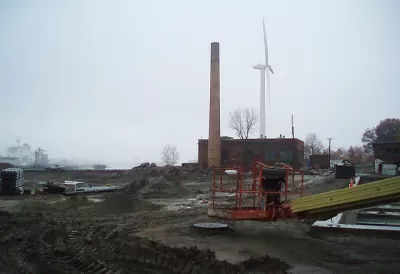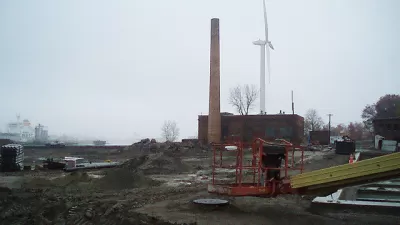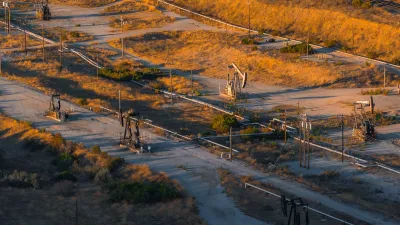The U.S. House of Representatives approved H.R. 3017 last week, which would extend the U.S. EPA brownfields through 2022.

Kira Hibbert reports that the House of Representatives passed H.R. 3017, the Brownfields Enhancement, Economic Redevelopment, and Reauthorization Act of 2017, on November 30. The bill would extend the U.S. Environmental Protection Agency's brownfield program, which provides funding to clean up and restore contaminated sites.
According to Hibbert H.R. 3017 improves the brownfields program by:
- Funding the program at an annual level of $200 million through fiscal 2022.
- Expanding brownfield grant eligibility to nonprofit groups and partnerships, such as community development organizations.
- Allowing the EPA to award multi-purpose grants of as much as $1 million to cover different activities or remediation at more than one site, and
- Increasing the maximum amount for other grants to $500,000 per site, from $200,000 with a new cap as large as $750,000 per site.
The House version of the bill has competition from the Senate's version—the latter would set aside less money for the brownfields program. "The House and Senate are expected to negotiate the final FY 2018 appropriations bill by the end of the year," according to Hibbert.
Hibbert writes to express support for H.R. 3017 from Smart Growth America, LOCUS, and the National Brownfields Coalition. TheU.S. Conference of Mayors, the National League of Cities, the National Association of Counties, and the National Association of Regional Councils also support the bill. The website for the Transportation and Infrastructure Committee of the House also collected statements from committee members in response to the adoption of the bill.
FULL STORY: HOUSE PASSES BROWNFIELDS REAUTHORIZATION BILL

Alabama: Trump Terminates Settlements for Black Communities Harmed By Raw Sewage
Trump deemed the landmark civil rights agreement “illegal DEI and environmental justice policy.”

Study: Maui’s Plan to Convert Vacation Rentals to Long-Term Housing Could Cause Nearly $1 Billion Economic Loss
The plan would reduce visitor accommodation by 25% resulting in 1,900 jobs lost.

Planetizen Federal Action Tracker
A weekly monitor of how Trump’s orders and actions are impacting planners and planning in America.

Wind Energy on the Rise Despite Federal Policy Reversal
The Trump administration is revoking federal support for renewable energy, but demand for new projects continues unabated.

Passengers Flock to Caltrain After Electrification
The new electric trains are running faster and more reliably, leading to strong ridership growth on the Bay Area rail system.

Texas Churches Rally Behind ‘Yes in God’s Back Yard’ Legislation
Religious leaders want the state to reduce zoning regulations to streamline leasing church-owned land to housing developers.
Urban Design for Planners 1: Software Tools
This six-course series explores essential urban design concepts using open source software and equips planners with the tools they need to participate fully in the urban design process.
Planning for Universal Design
Learn the tools for implementing Universal Design in planning regulations.
Caltrans
Smith Gee Studio
Institute for Housing and Urban Development Studies (IHS)
City of Grandview
Harvard GSD Executive Education
Toledo-Lucas County Plan Commissions
Salt Lake City
NYU Wagner Graduate School of Public Service




























